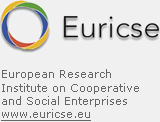Organized by CINEFOGO Network of Excellence in Ersta Sköndal University College, Stockholm. Stockholm, Sweden, September 17 - 19, 2009
Objectives
The place of religion in modern European societies has for some time been a relatively neglected question among scholars outside of departments of theology and religion. This absence of interest has to be understood against the background of both the relatively secular character of many European societies and the dominance of a secularization thesis that understood religion to be a relic of a past soon to be entirely overtaken by a post-religious, secular social order.
In fact, Europe stands out as an oddity in a global context where even other Western countries, prominently the United States, are intensely religious. Furthermore, with increased immigration and the rise of new forms of religiosity in Europe, it now appears that claims of the imminent decline of religion may have been premature. Moreover, in the wake of the many challenges faced by the European welfare states has followed an increased interest in the character and role of European civil society, not least the role of civil society in the provision of welfare, identity and community.
In this context some have argued that faith-based organizations constitute a very important part of civil society, both from a sheer quantitative point of view and in terms of range, durability, and personal significance. Thus, religious institutions, it is claimed, do not simply provide an opportunity for practicing a personal faith; it also serves a strong base for community and identity. This translates into both tangible social services for its members and a more subtle sense of belonging. In a world increasingly dominated by the cold logic of the market and the formal care provided by the institutions of the welfare state, religious communities are often said to constitute a “haven in a heartless world.”
On the other hand, the revival of religiosity, and not least overtly political and at times aggressive expressions of religious belief, has created a significant backlash – at times dubbed “Enlightenment fundamentalism” – that has been steeped in an anxiety that cherished modern and secular values such as gender equality and the equal civil rights for sexual minorities will now come under attack by faith-based political parties and movements that promote repressive practices hostile to equal right for gays and women. These concerns regarding a resurgent religiosity is often linked to related worries about the effects of increased immigration and the specter of a multiculturalism that will fundamentally alter European social and cultural life.
In this conference we aim to focus on the role of religion in modern Europe with an emphasis on the social dimension and by viewing religious institutions as important parts of civil society, while regarding the normative claims and worries cited above as empirical questions. It will include a number of perspectives, such as consideration of the particular historical and theological legacies that continue to shape the role of religion in Europe; religion as a matter of personal faith vs. religion as community and social identity; religious beliefs and networks as context for social and political mobilization, religion and its instrumental aspects, including the provision of education, culture, and social welfare.
Our goal is to bring together a diverse group of scholars from both Europe and elsewhere with the aim of bringing a comparative perspective to our analysis and discussion of religion in contemporary European civil societies. By inviting not only theologians and students of comparative religion, but also sociologists of religion, historians, and scholars focused on the social dimension of civil society, we hope to allow for a broad context to investigate one of the most crucial developments in modern Europe: the return of religion.
Call for papers
Submissions to present papers on the conference themes are welcome. The deadline for submission of abstracts (max 200 words) is June 1, 2009.
Who
The conference is open to all members of the CINEFOGO Network as well as to other interested colleagues. PhD students are also welcome to apply.
Where
The conference will be held at Ersta Sköndal University College in Stockholm, Sweden. It is situated in the heart of Stockholm. For more information, please see http://www.esh.se
Organizers
The conferences is collaboratively organized and funded by the CINEFOGO Network of Excellence on Civil Society and New Forms of Governance in Europe, Ersta Sköndal University College, Sweden and The Netherlands Institute for Social Research, Holland. Additionally, the Church of Sweden Research Unit is supporting the open introductory lecture.
Costs
The conference fee will be 40 Euro (or 75 Euro including a welcome buffet style type dinner). The conference will be free for paper-givers, while travel and accommodation costs will be covered by each individual participant/institution.
Further information
Regarding professional matters and submission of abstracts, please contact Charlotte Engel, e-mail [email protected] or Paul Dekker, [email protected]. Regarding practical matters, please contact Lena Blomquist, e-mail: [email protected], telephone +46 8 55505130








